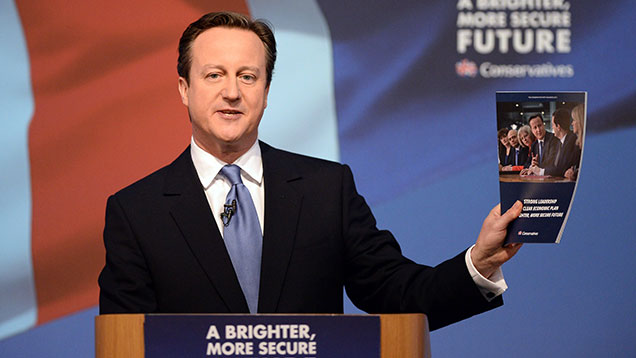What farmers need to know about Conservative tax plans
 ©Tim Rooke/Rex Shutterstock
©Tim Rooke/Rex Shutterstock Now that we know the shape of the UK government, we have a better indication of what tax changes may be ahead in the next five years.
A look back at the Conservative party’s manifesto pledges and the 2015 Budget announcements give an indication of what the new government intends to do.
Business taxes
Annual tax returns
- To be replaced by digital tax accounts – with the experience of the BPS claim system, many are asking whether this is a good idea. It should mean less work because certain information such as earnings (for those on PAYE) will already be shown on the digital tax accounts which will be created for individuals.
Capital allowances
- Make available on a longer list of energy-saving and water-efficient technologies in summer 2015 – the list currently includes solar thermal equipment, pipework insulation, boilers, lighting, combined heat and power and many others.
Annual investment allowance
- Set a new, higher, permanent level – currently £500,000 but it is due to go back to £25,000 from 1 January 2016.
- We have to wait until the Autumn Statement to learn the new permanent rate – much too late for proper planning, say accountants and lenders, particularly when some kit has a lead time of several months.
Farmer averaging
- Allow farmers to average their profits over five years (this can be done over only two years at the moment) to smooth the tax impact of volatile profitability.
- Useful only if there are really big fluctuations, say accountants. Estimated by the government to potentially save farming £30m/year.
Business rates
- Continue to review business rates – emphasis on improving the position of small firms.
Corporation tax rates
- Maintain or reduce the taxation rate of 20% for companies.
Employers’ national insurance
- Abolish employers’ national insurance (NI) contributions for apprentices under 25 years old from 2016. (The coalition government got rid of NI contributions for the under-21s.)
- Class 2 rate for the self-employed will be scrapped, class 4 NI contributions on trading profits reformed to introduce a new benefit test.
VAT
- VAT rates will not increase. VAT registration threshold will increased from £81,000 to £82,000.
Entrepreneurs’ relief
- Entrepreneur’s relief from capital gains tax is to be tightened – new rules on limits disposed of and those where associated business are involved.
Small business rate relief
- To be extended to 31 March 2016 so that properties with a rateable value of £6,000 or less get 100% relief. Rateable values between £6,001 and £12,000 will get relief tapered from 100-0%.
Personal taxes
Personal allowances
- Will be increased to £12,500. Expected to be linked to the national minimum wage (NMW) so that people working 30 hours a week on the NMW will pay no tax.
- The amount of personal allowance individuals can transfer to their spouse or civil partner where the higher earner is a basic-rate taxpayer will rise annually.
Higher rate tax threshold
- Will rise to £42,385 in 2015-16 and £42,700 and £43,300 in the two following years.
Income tax and national insurance
- No increase in rates of national insurance (NI) or income tax. Thresholds will not be lowered, but threshold for the 40% higher rate of income tax will rise to £50,000.
- £1,000 tax-free personal savings allowance from 6 April 2016. This will be £500 for 40% higher rate taxpayers, but zero for 45% higher rate taxpayers.
- See above for Class 2 and 4 NI details.
Pensions
- Pension lifetime allowance on contributions slashed by £250,000 to £1m from 6 April 2016.
- Tax relief on pension contributions for people earning more than £150,000 will be reduced.
Inheritance tax
- Introduce a transferable main residence allowance of £175,000 per person. Combined with an existing transferable £325,000 nil-rate band, this will enable a couple to transfer a home worth £1m to their children tax-free.
Deeds of variation
- To be reviewed in summer 2015. These effectively allow a family to alter a will after death to make the distribution of the estate more tax-efficient, as long as all beneficiaries agree to the change.
- The review means any such deeds should be put in place before the summer, say advisers. Also, wills should be reviewed so that if deeds of variation are no longer an option, the wills work as they should.
